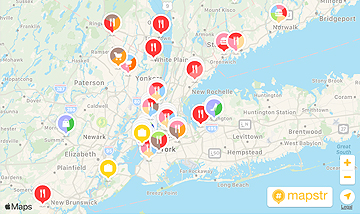|
Address
4101 Reservoir Rd, NW Washington, D.C. – 20007 Telephone (202) 944 6246 Fax (202) 944 6244 info@france-science.com Website www.france-science.com |
Science Counselor
Mireille GUYADER |

OST: Who we are
The Office for Science and Technology (OST), a team of 24 staff members including professors, senior researchers and engineers located in the Embassy (Washington, DC) and 6 consular offices (Atlanta - Boston - Chicago - Houston - Los Angeles - San Francisco) is dedicated to bilateral FR-US collaborations in Science and Technology.
The OST’s main priorities
- Monitor and report advances in Science and Technology in the US through newsletters and diplomatic channels
- Promote bilateral partnerships in science, technology and innovation
- Foster exchanges and increase mobility of researchers, doctoral students and entrepreneurs
- Serve as a liaison between French and American academic and scientific organizations as well as between the two countries’ central governments and the European Delegation
- Increase the visibility of France’s foremost laboratories, universities and start-ups
- Support young innovative companies and the internationalization of competitiveness clusters
Close collaboration between the OST and other diplomatic divisions, such as the Economic Department, the Cultural Services of the Embassy of France as well as French Research Organizations (CNRS, Inserm, CNES, CEA), allows the OST to efficiently handle the many economic and social implications of current science and technology issues.
France-USA bilateral agreements in Science & Technology
Two agreements in Science and Technology were signed in 2008: one for general Science & Technology cooperation, and one related to homeland security issues.
They constitute a clear political willingness to cooperate, a means of defining priorities in collaboration and exchanges, a context in which to establish new cooperative efforts, and a way to establish standards regarding intellectual property.
Examples of OST initiatives, programs and events:
![]()
![]() Chateaubriand Fellowship (STEM): enables US PhD students to work for up to 9 months in a French partner laboratory (more than 120 fellows since 2010).
Chateaubriand Fellowship (STEM): enables US PhD students to work for up to 9 months in a French partner laboratory (more than 120 fellows since 2010).
![]()
![]() NETVA (New Technology Venture Accelerator): accelerates the internationalization of French innovative start-ups through intense entrepreneurial training in the US.
NETVA (New Technology Venture Accelerator): accelerates the internationalization of French innovative start-ups through intense entrepreneurial training in the US.
![]()
![]() YEI (Young Entrepreneurs Initiative): since 2005, has helped 230 US-based innovative start-ups develop and create partnerships in France.
YEI (Young Entrepreneurs Initiative): since 2005, has helped 230 US-based innovative start-ups develop and create partnerships in France.
![]()
![]() FAID (French-American Innovation Day): annual event which brings together scientists, industry representatives and investors to exchange views on a specific technological issue.
FAID (French-American Innovation Day): annual event which brings together scientists, industry representatives and investors to exchange views on a specific technological issue.
![]()
![]() The FADEx (French-American Doctoral Exchange) program created in 2014 aims to enhance scientific exchanges between American and French Ph.D. students working in the same field of research in order to encourage the development of French-American collaborations. This program also serves as an opportunity for American students to better understand the French research system.
The FADEx (French-American Doctoral Exchange) program created in 2014 aims to enhance scientific exchanges between American and French Ph.D. students working in the same field of research in order to encourage the development of French-American collaborations. This program also serves as an opportunity for American students to better understand the French research system.
![]()
![]() France-Atlanta: since 2010, the OST has organized scientific workshops during the France-Atlanta conferences. This event is co-organized by the Consulate General of France in Atlanta and the Georgia Institute of Technology and is centered on innovation and designed to foster French-American cooperation and synergetic exchange in the southeastern U.S.
France-Atlanta: since 2010, the OST has organized scientific workshops during the France-Atlanta conferences. This event is co-organized by the Consulate General of France in Atlanta and the Georgia Institute of Technology and is centered on innovation and designed to foster French-American cooperation and synergetic exchange in the southeastern U.S.
![]()
![]() Science Breakfasts of the Science Diplomats Club: prominent members of the US community are invited to address science advisors from foreign embassies. Recent speakers include: under secretaries of DHS & DOE and directors of Federal agencies.
Science Breakfasts of the Science Diplomats Club: prominent members of the US community are invited to address science advisors from foreign embassies. Recent speakers include: under secretaries of DHS & DOE and directors of Federal agencies.
![]()
![]() Café des Sciences: a series of scientific talks in French or in English, organized by scientific attachés around the United States. These events are free and open to the public.
Café des Sciences: a series of scientific talks in French or in English, organized by scientific attachés around the United States. These events are free and open to the public.
Research and Innovation in France
France introduced major changes to its research, higher education and innovation system:
- Competitive funding agency called the National Research Agency (ANR).
- Decentralization process: Universities have been granted more autonomy, to design their strategies and engage in international partnerships.
- Investments for the Future: University endowments, campuses of excellence, seed funds for innovation, clustering programs, etc.
- Joint Laboratories established in Chemistry, Environment, Molecular Biology, etc. with the French research organizations CNRS, Inserm and INRIA.
Latest news from the Office for Science & Technology
![]() Visit france-science.com for more information
Visit france-science.com for more information
![]() Subscribe to our Newsletters
Subscribe to our Newsletters

















